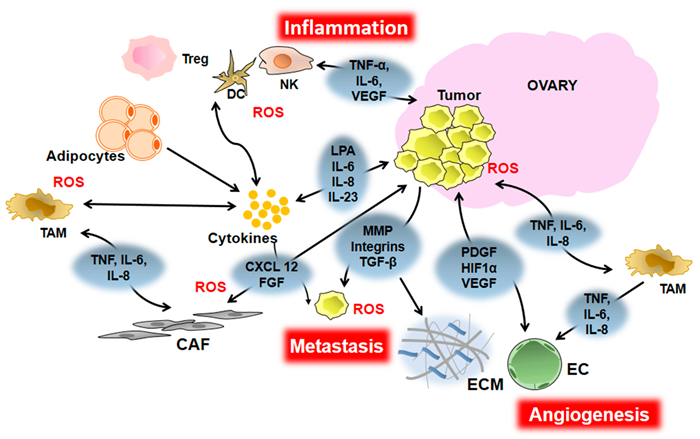Inflammation is the body’s natural response to injury, infection, or stress. While acute inflammation is necessary for healing, chronic inflammation can wreak havoc on our health, contributing to various diseases such as heart disease, cancer, and arthritis. In the quest for wellness, many turn to anti-inflammatory supplements as a natural way to support the body’s defense against inflammation. In this comprehensive guide, we delve into the world of anti-inflammatory supplements, exploring their benefits, mechanisms of action, and the top contenders in the market today.
Understanding Inflammation:
Before we dive into the realm of anti-inflammatory supplements, it’s crucial to understand the fundamentals of inflammation. Inflammation is a complex biological response orchestrated by the immune system to protect the body from harmful stimuli. While acute inflammation is a short-term process aimed at combating infections and facilitating tissue repair, chronic inflammation is persistent and can lead to tissue damage and disease.
The Role of Inflammatory Mediators:

At the core of inflammation are various inflammatory mediators, including cytokines, prostaglandins, and leukotrienes. These molecules play pivotal roles in orchestrating the inflammatory response by regulating immune cell activity and promoting vasodilation, swelling, and pain. Chronic activation of these inflammatory pathways can contribute to the development and progression of chronic diseases.
The Benefits of Anti-Inflammatory Supplements:
Anti-inflammatory supplements offer a natural approach to modulating the body’s inflammatory response, potentially reducing the risk of chronic diseases and promoting overall well-being. These supplements work by targeting key inflammatory pathways, inhibiting the production of pro-inflammatory molecules, and promoting the activity of anti-inflammatory compounds within the body.
Top Anti-Inflammatory Supplements:
- Turmeric (Curcumin):
- Curcumin, the active compound in turmeric, boasts potent anti-inflammatory and antioxidant properties.
- It inhibits the activity of inflammatory enzymes and modulates various inflammatory pathways.
- Studies suggest that curcumin supplementation may alleviate symptoms of arthritis, inflammatory bowel disease, and other inflammatory conditions.
- Fish Oil (Omega-3 Fatty Acids):
- Omega-3 fatty acids found in fish oil, particularly EPA and DHA, possess anti-inflammatory effects.
- They compete with pro-inflammatory omega-6 fatty acids for enzymatic conversion, thus reducing the production of inflammatory mediators.
- Fish oil supplementation has been linked to reduced inflammation markers and improved symptoms in conditions such as rheumatoid arthritis and cardiovascular disease.
- Ginger:
- Ginger contains bioactive compounds like gingerol and shogaol, which exhibit anti-inflammatory properties.
- It inhibits the production of pro-inflammatory cytokines and mediators, helping to alleviate inflammation and pain.
- Studies suggest that ginger supplementation may be beneficial for individuals suffering from osteoarthritis, muscle soreness, and menstrual pain.
- Green Tea Extract:
- Green tea is rich in polyphenols, particularly epigallocatechin gallate (EGCG), which possess potent antioxidant and anti-inflammatory effects.
- EGCG modulates inflammatory pathways and reduces the production of inflammatory cytokines.
- Green tea supplementation has been associated with reduced inflammation and improved markers of cardiovascular health.
- Boswellia Serrata:
- Boswellia serrata, also known as Indian frankincense, contains boswellic acids that exhibit anti-inflammatory properties.
- It inhibits the activity of pro-inflammatory enzymes and reduces the production of inflammatory mediators.
- Boswellia supplementation has shown promise in managing conditions such as osteoarthritis, asthma, and inflammatory bowel disease.
- Resveratrol:
- Resveratrol is a polyphenol found in grapes, berries, and red wine, known for its antioxidant and anti-inflammatory effects.
- It modulates inflammatory pathways, reduces oxidative stress, and promotes overall health.
- Resveratrol supplementation has been linked to reduced inflammation, improved cardiovascular health, and enhanced longevity.
- Bromelain:
- Bromelain is a mixture of proteolytic enzymes found in pineapple stems, known for its anti-inflammatory and immune-modulating properties.
- It reduces inflammation by inhibiting the production of pro-inflammatory cytokines and promoting the resolution of inflammation.
- Bromelain supplementation may aid in the management of conditions such as osteoarthritis, sinusitis, and sports injuries.
Incorporating Anti-Inflammatory Supplements Into Your Routine: While anti-inflammatory supplements offer promising health benefits, it’s essential to incorporate them into a comprehensive wellness regimen that includes a balanced diet, regular exercise, stress management, and adequate sleep. Consult with a healthcare professional before starting any supplementation regimen, especially if you have underlying health conditions or are taking medications.
Inflammation lies at the root of many chronic diseases, making it imperative to adopt strategies to support a healthy inflammatory response. Anti-inflammatory supplements harness the power of nature to modulate inflammatory pathways, reduce oxidative stress, and promote overall well-being. By incorporating these supplements into your daily routine alongside lifestyle modifications, you can take proactive steps towards optimal health and longevity. Remember, wellness is a journey, and small changes can yield significant results in the long run.


